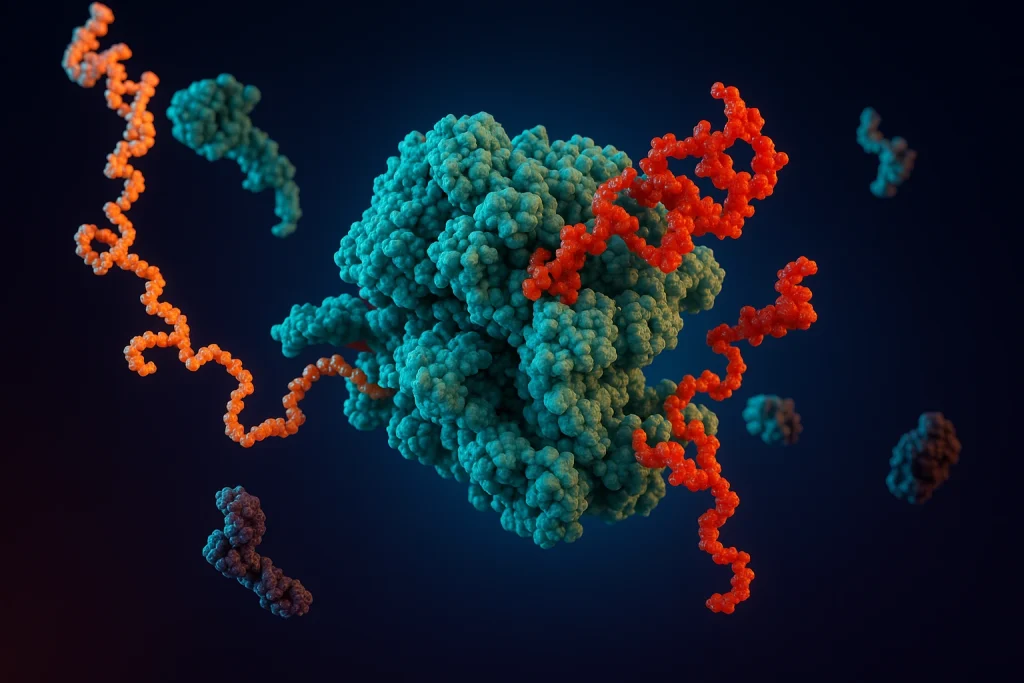The Role of Codons in Protein Synthesis: Decoding the Language of Life
By: Admin
Introduction: The Genetic Language Behind Life
Every cell in your body functions through proteins—enzymes, hormones, antibodies, and structural components. But behind each protein lies a precise code written in DNA. That code is read in three-letter units known as codons. These codons form the foundation of protein synthesis, the biological process responsible for building the machinery of life.
Understanding the role of codons in protein synthesis not only unravels the complexity of gene expression but also offers deep insight into biotechnology, medicine, and evolutionary biology.
What Are Codons?
Codons are sequences of three nucleotides (triplets) in mRNA (messenger RNA) that specify which amino acid should be added next during protein synthesis.
Each codon corresponds to one of:
- 20 standard amino acids
- Or a start/stop signal in translation
There are 64 possible codons (4 nucleotides × 3 positions = 4³), including:
- 61 codons for amino acids
- 3 stop codons: UAA, UAG, UGA
- 1 start codon (AUG) that also codes for methionine
The Role of Codons in Protein Synthesis
Step-by-Step Breakdown:
1. Transcription: DNA to mRNA
In the nucleus, the DNA sequence of a gene is transcribed into mRNA. This mRNA is a complementary copy of the gene, except it uses uracil (U) instead of thymine (T).
Example:
DNA: TAC GGA CCT
mRNA: AUG CCU GGA
Here AUG is the start codon.
2. Translation: mRNA to Protein
Once the mRNA exits the nucleus and reaches a ribosome, the process of translation begins.
Here’s what happens:
- Codon recognition: The ribosome reads the mRNA in triplets (codons).
- tRNA pairing: Transfer RNA (tRNA) molecules bring amino acids and match codons using anticodons.
- Peptide bond formation: Each matching tRNA delivers an amino acid, which gets linked to form a growing polypeptide chain.
- Stop signal: When a stop codon is reached, synthesis halts, and the protein is released.
3. Codon-to-Amino Acid Mapping
Here are a few examples of codons and their corresponding amino acids:
| Codon | Amino Acid |
|---|---|
| AUG | Methionine (Start) |
| UUU | Phenylalanine |
| GAA | Glutamic acid |
| UGA | Stop codon |
The accuracy of codon matching is crucial. A single error in a codon can result in:
- A silent mutation (no effect)
- A missense mutation (different amino acid)
- A nonsense mutation (premature stop)

Why Codons Matter in Biology and Medicine?
1. Genetic Disorders
Misreading or mutations in codons can cause inherited diseases like:
- Sickle cell anemia
- Cystic fibrosis
- Duchenne muscular dystrophy
2. Biotechnology
Codons are optimized when inserting foreign genes into host organisms (e.g., bacteria or yeast) to maximize protein expression.
3. Gene Therapy & mRNA Vaccines
Codon design is crucial in developing mRNA-based treatments and vaccines to ensure efficient protein production in human cells.
4. Evolutionary Insights
Codon usage patterns differ among organisms. These patterns help scientists understand evolutionary relationships and gene expression levels.
Start and Stop Codons: Traffic Signals of Translation
Start Codon (AUG)
- Signals the beginning of translation
- Codes for methionine
Stop Codons (UAA, UAG, UGA)
- Do not code for any amino acid
- Signal the ribosome to release the completed protein
Without proper recognition of start and stop codons, protein synthesis fails, leading to incomplete or malfunctioning proteins.
Summary Table: Codons in Protein Synthesis
| Role of Codons | Description |
|---|---|
| Instruction units | Each codon tells the ribosome which amino acid to add next |
| Translation mediators | Codons link mRNA to amino acids via tRNA anticodons |
| Error checkpoints | Redundancy allows tolerance for some mutations (e.g., silent mutations) |
| Start/Stop signals | Special codons define the beginning and end of translation |
| Genetic regulation | Codon usage affects translation speed and efficiency |
Final Thoughts
Codons may be just three-letter sequences, but they carry the instruction manual for life itself. From the blueprint stored in DNA to the final functional protein, codons act as precise, ordered commands that ensure life operates smoothly. Whether you’re a student, scientist, or simply curious, understanding codons means understanding how life builds itself—one amino acid at a time.
FAQs
Q1. Why are codons made of three nucleotides?
Three nucleotides create enough combinations (64) to encode all 20 amino acids and necessary start/stop signals.
Q2. What happens if a codon is mutated?
It depends on the type of mutation. Some are harmless (silent), while others can change the protein’s structure or halt production.
Q3. Are codons the same in all organisms?
The genetic code is u003cstrongu003ealmost universalu003c/strongu003e, but u003cstrongu003ecodon usage preferencesu003c/strongu003e (codon bias) can vary between species.
